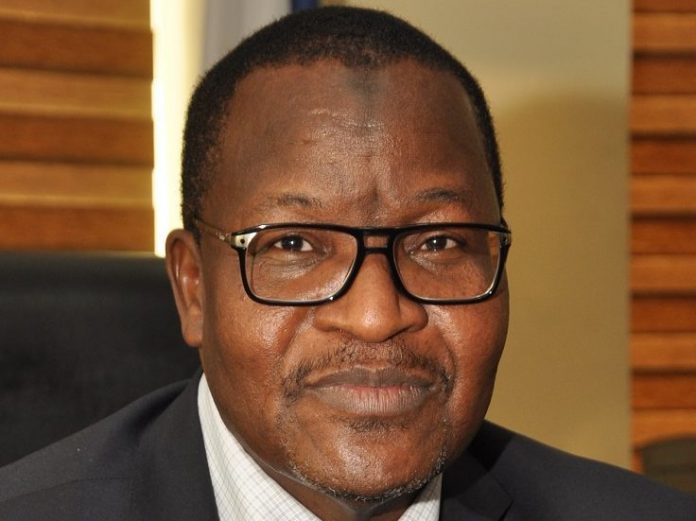As stakeholders in Nigeria’s telecommunications industry commemorate 20 years of telecoms revolution in the country, the Nigerian Communications Commission (NCC) has listed key initiatives for implementation in the years ahead to consolidate the growth and gains of the telecom sector.
The Executive Vice Chairman of the commission, Prof. Umar Danbatta, listed the digital frontiers in his paper titled ‘Telecommunications in Nigeria: The Next Frontier’ at the 20th anniversary of the telecommunications revolution in Nigeria recently organised by Compact Communications Limited in Lagos.
During the event, the NCC was honoured with an award “in appreciation of its institutional support to the growth and development of telecoms in Nigeria” while Prof. Danbatta also received an award “in appreciation of his immense contribution to the growth and sustenance of telecoms development in Nigeria.”
Represented at the forum by NCC’s Director, Public Affairs, Dr. Ikechukwu Adinde, the EVC said that over the past 20 years, the sector had witnessed significant growth in subscribers, internet usage, investment, innovation, contributions to Gross Domestic Product (GDP) and multiplier effects of the growth in other sectors of the economy.
The industry regulator said that through collaboration with relevant stakeholders, NCC is driving new frontiers aimed at ensuring consistent growth of the nation’s digital economy sphere.
According to him, as a foremost telecommunications regulatory agency and consistent with the commission’s mandate as stipulated in the enabling Nigerian Communications Act (NCA) 2003, and other guiding legislations, the NCC had remained at the forefront of leveraging latest technologies and accelerating broadband infrastructure deployment to put Nigeria on the global map of the digital economy experience.
To achieve this, the EVC said the commission was working to ensure increased broadband penetration in line with Federal Government’s targets as contained in the Nigerian National Broadband Pan (NNBP) 2020-2025, which was launched by President Muhammadu Buhari in March 2020.
Danbatta explained that the NNBP aims at achieving 70 per cent broadband penetration among 90 per cent of the country’s population and also seeks to achieve broadband speeds of 15Mbp and 25Mbps in rural and urban areas respectively over the next five years.
He pointed out that the Commission was also driving various initiatives aimed at facilitating the deployment of Fifth Generation (5G) Mobile Technology in the country, stressing that a robust broadband infrastructure will play a key role in fast-tracking the effective deployment of 5G technology and facilitate availability of services associated with 5G technology.
The EVC elaborated: “Already, the Commission is set to auction some spectrum slots in 3.5GHz band and we have confirmed 97 per cent readiness for 5G deployment in this regard. This is in line with the marching order given to us by Honourable Minister of Communications and Digital Economy, Prof. Isa Ali Ibrahim (Pantami), following approval by the Federal Executive Council to proceed on our 5G Deployment Plan.
He said the Information Memorandum (IM) for the auction had earlier been shared with stakeholders and we are set to auction the 5G spectrum before the end of the year, adding that one of the initiatives being undertaken by the Commission to enhance the attainment of the next frontier for telecom development in Nigeria and the nation’s economic growth is the ongoing review of licensing structure in the sector.
According to him, this is to align telecoms licensing process with the wide range of technological advances, convergence of technologies and services shaping global telecoms space.
Danbatta said the commission had also finalized review of its Spectrum Trading Guidelines (STG). The STG, according to the EVC, allows spectrum resource in-country to be traded on the Secondary Market through Transfer, Sharing or Leasing (TSL) once the stipulated regulatory conditions have been complied with.
He further explained that the NNBP 2020-2025 required that these Guidelines be reviewed to ensure that un-utilised spectrum is fairly traded to facilitate rollout by other operators among others, adding that the guidelines will, therefore, facilitate the country’s yearning for ubiquitous broadband access in line with the economic agenda of the Federal Government.






